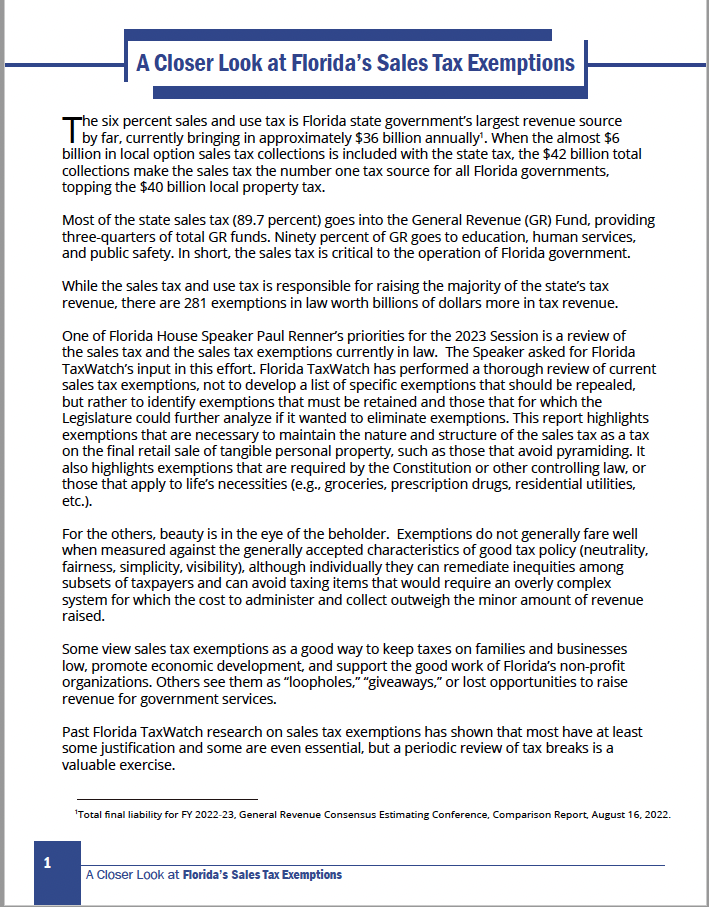A Closer Look at Florida’s Sales Tax Exemptions

Most of the state sales tax (89.7 percent) goes into the General Revenue (GR) Fund, providing three-quarters of total GR funds. Ninety percent of GR goes to education, human services, and public safety. In short, the sales tax is critical to the operation of Florida government. While the sales tax and use tax is responsible for raising the majority of the state’s tax revenue, there are 281 exemptions in law worth billions of dollars more in tax revenue. One of Florida House Speaker Paul Renner’s priorities for the 2023 Session is a review of the sales tax and the sales tax exemptions currently in law. The Speaker asked for Florida TaxWatch’s input in this effort. Florida TaxWatch has performed a thorough review of current sales tax exemptions, not to develop a list of specific exemptions that should be repealed, but rather to identify exemptions that must be retained and those that for which the Legislature could further analyze if it wanted to eliminate exemptions. This report highlights exemptions that are necessary to maintain the nature and structure of the sales tax as a tax on the final retail sale of tangible personal property, such as those that avoid pyramiding. It also highlights exemptions that are required by the Constitution or other controlling law, or those that apply to life’s necessities (e.g., groceries, prescription drugs, residential utilities, etc.). For the others, beauty is in the eye of the beholder. Exemptions do not generally fare well when measured against the generally accepted characteristics of good tax policy (neutrality, fairness, simplicity, visibility), although individually they can remediate inequities among subsets of taxpayers and can avoid taxing items that would require an overly complex system for which the cost to administer and collect outweigh the minor amount of revenue raised. Some view sales tax exemptions as a good way to keep taxes on families and businesses low, promote economic development, and support the good work of Florida’s non-profit organizations. Others see them as “loopholes,” “giveaways,” or lost opportunities to raise revenue for government services. Past Florida TaxWatch research on sales tax exemptions has shown that most have at least some justification and some are even essential, but a periodic review of tax breaks is a valuable exercise.